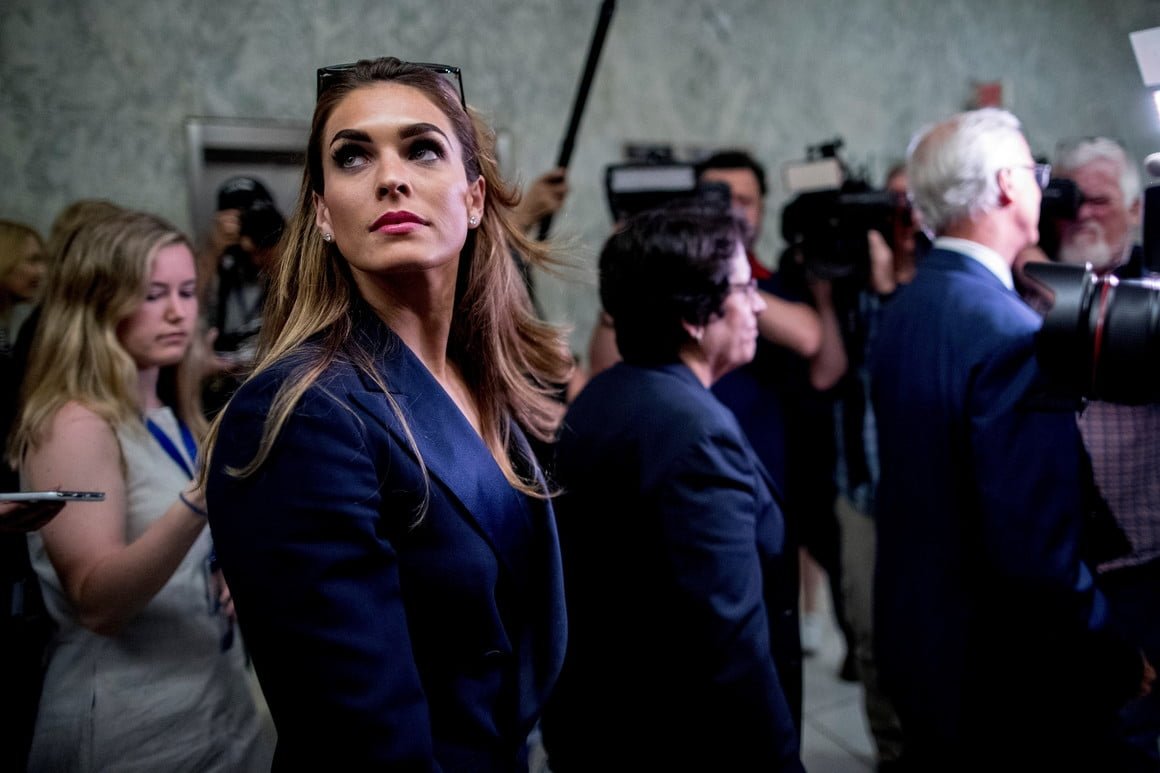Hope Hicks was known as Donald Trump’s gatekeeper, a calming force for the former president who has been by his side for years as a loyal confidante.
Table of Contents
NEW YORK — Hope Hicks, a Trump-era White House adviser and communications director, is next to testify in former President Donald Trump’s criminal trial.
Hicks’ name has been brought up by several witnesses who have testified so far. She is expected to be questioned by prosecutors about her knowledge of the deal brokered between Trump and the leadership at the National Enquirer tabloid to “catch and kill” stories that could harm his 2016 presidential run.
Who is Hope Hicks?
Hope Hicks has worked for Trump since 2014 when she worked for the Trump Organization under Ivanka Trump, the former president’s daughter, and Trump himself. Hicks joined Trump’s first presidential campaign in 2015 as press secretary. After Trump was elected, she joined the administration as director of strategic communications and later as communications director. She resigned from the role in 2018.
Hope Hicks went on to join the Fox Corp., as chief communications officer and executive vice president but came back to the White House in 2020 as an aide to Jared Kushner, Ivanka’s husband, and counselor to Trump.
How does she fit into the prosecution’s case?
Hope Hicks’ early testimony detailed her history with the Trump family, both in business and in politics. While on the stand, she detailed the moments in which the Access Hollywood tape first came out and the campaign response to it.
Hope Hicks also testified to receiving a media inquiry from a Wall Street Journal reporter who was seeking comment from the campaign for a story on the allegations that Trump had an affair with Playboy model Karen McDougal and adult film star Stormy Daniels. Trump has denied both allegations.
Hope Hicks is likely to be asked about what she knows about the deal brokered between Trump, his lawyer Michael Cohen, and the leadership at the National Enquirer. Prosecutors may also ask her about the urgency to keep the stories of alleged affairs between Trump and McDougal and Daniels quiet. And she is likely to be asked about her time at the White House.
In earlier testimony, David Pecker, former publisher of the National Enquirer, testified that Hicks was in and out of an initial meeting he had in August 2015 where the deal to aid the campaign was made. Hicks also used to work for a communication and strategy firm that worked with American Media Inc., which at the time owned the National Enquirer.
During opening statements, prosecutors noted the Access Hollywood tape was released a month before the election.
“The campaign went into immediate damage control mode,” prosecutor Matthew Colangelo said in opening statements, adding that Trump received word the next day that another woman — Daniels — was about to come forward with her own alleged sexual encounter with the GOP nominee.
A story of infidelity with a porn star would have been damaging to the campaign, Colangelo said, and Trump wanted to “prevent American voters from learning about that information before Election Day.”
In 2019 hundreds of pages of court papers were made public and showed communication between Hicks, Cohen, Pecker, Trump and others in the fallout of the release of the tape and in the lead up to the deal with Daniels.
The payments made constitute the 34 “falsified” business records the prosecution alleged Trump made. In opening statements, prosecutors argued that Trump’s lawyer Michael Cohen submitted 11 “phony invoices” paid for by checks with “false entries” signed by Trump himself.
Trump has pleaded not guilty and instead argues that all he did was pay his lawyer.
Court adjourned for the weekend
Judge Merchan has called an end to the day’s proceedings. The trial will start back up on Monday.
– Aysha Bagchi

